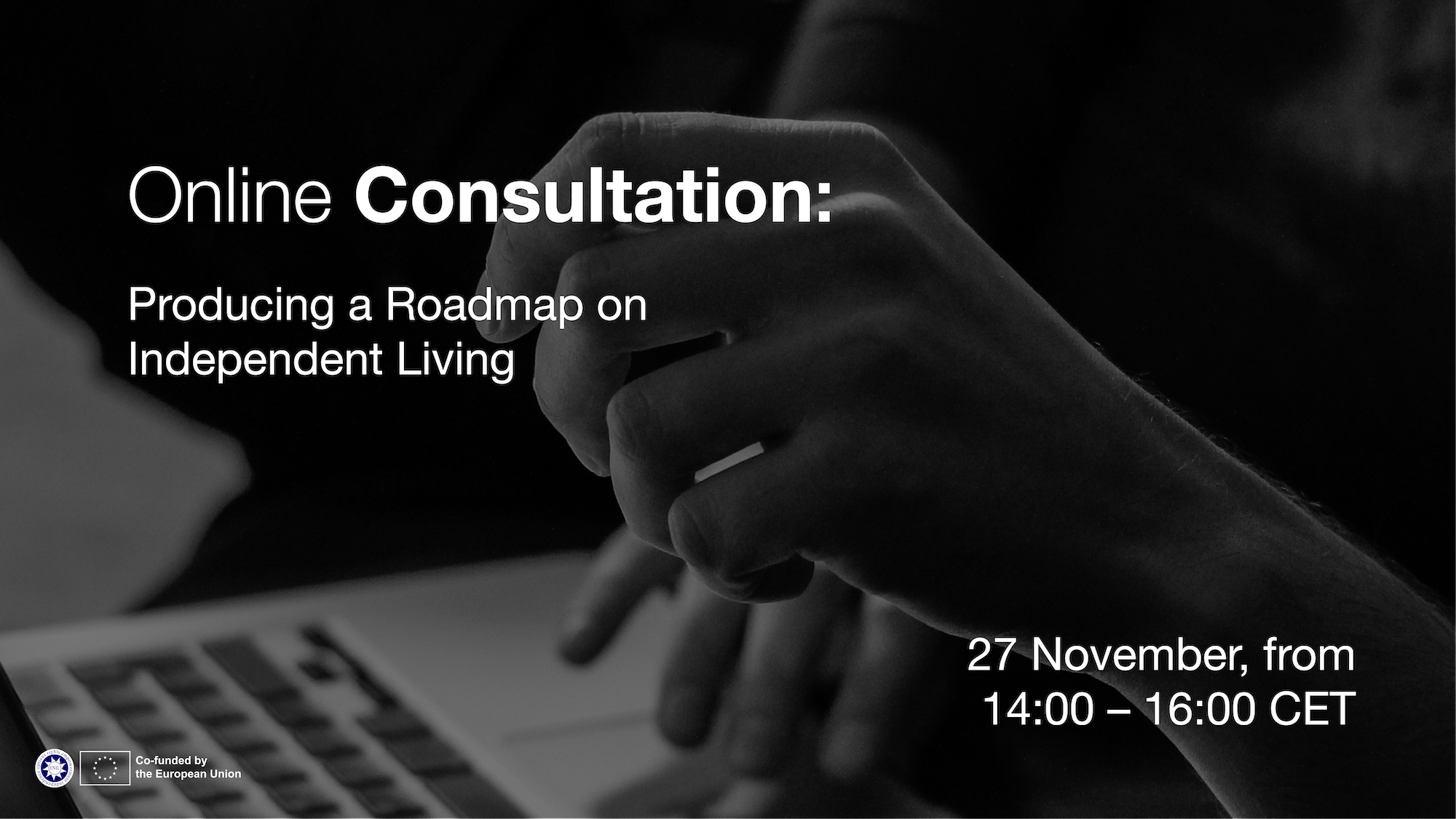Webinar on Independent Living organised by the Independent Living Research Network
Teodor Mladenov, 22 May 2024
We heard from three leading disability studies researchers – Dr Agnes Turnpenny and Dr Gabor Petri from TÁRKI Social Research Institute, and Dr Miro Griffiths from the Centre for Disability Studies, University of Leeds. The webinar was organised with the help of Dr Lilia Angelova-Mladenova and Ines Bulić Cojocariu and was facilitated by Dr Teodor Mladenov.
Agnes Turnpenny and Gabor Petri discussed some disturbing new and old mechanisms of marginalisation of disabled people in Hungary.
In their study, Agnes and Gabor had employed both qualitative and quantitative methods, including review of policy documents of legal and policy changes since the 1990s; life course interviews with disabled people and their family members; a national representative survey about social attitudes toward disabled people and their rights; and media analysis.
The results show that access to community-based social services in Hungary has not improved since the 2010s. Life course interviews testify of continued and serious levels of social exclusion due to stigma, lack of access to services and spaces, poverty and housing problems, services not responding to needs, and exclusion from the labour market. Social attitudes are less inclusive toward autistic people and people with intellectual disabilities. Media portrayals of disability usually show a predominantly passive, victimised image of disabled people who lack agency.
In their conclusion, Agnes and Gabor emphasised the importance of listening to the voices of the most marginalised disabled people, particularly autistic people and people with intellectual disabilities. This is a matter of epistemic justice, the researchers said.
Miro Griffiths presented his work on disability activism in Europe, focusing on young disabled activist’s views and experiences.
Miro’s project offers insight into young disabled activist’s contributions to disability politics, the barriers limiting their participation, and their vision for the future of disability activism. He outlined the four phases and the key findings of his project: (1) a survey exploring opportunities and challenges to young disabled activist’s participation in disabled people’s social movements; (2) interviews exploring opportunities and challenges to young disabled activist’s participation in disabled people’s social movements plus their vision for an inclusive and accessible society; (3) a ‘future laboratory’ workshop supporting young disabled activists to imagine the role of disabled people’s social movements in achieving such societies; and (4) production of a documentary film exploring youth participation in disabled people’s social movements across Europe.
In conclusion, Miro iterated the importance of creating real-life alternatives to dominant cultures and practices of invalidation – something that the young disabled activists from Miro’s project are actively seeking to achieve. Intersectional approaches and mindsets are key to making such ‘heterotopias’ possible.
A recording of the event is available through this link.
What is the Independent Living Research Network (ILRN)?
The ILRN is an international research collaboration founded and hosted by ENIL. Its aim is:
to facilitate communication and development of joint initiatives among researchers who focus in their work on Independent Living (IL) and kindred topics such as deinstitutionalisation, personal assistance, Article 19 of the UN Convention on the Rights of Persons with Disabilities, and others.
The ILRN was created in 2017 on the initiative of Jamie Bolling, ENIL’s Director at the time. The network has been active since 2018 and has been maintained and coordinated by Dr Teodor Mladenov, research fellow at ENIL until 2019, then academic at the University of Glasgow.
Back in 2018, we started with 25 researchers from 10 countries. Currently, the ILRN has 38 members from 17 countries, most of them in Europe but some in other parts of the world (China, Columbia, New Zealand).
The ILRN’s web pages are part of ENIL’s website and are available here: Independent Living Research Network – ENIL. Researchers who want to become members of the ILRN can become members by completing a membership questionnaire: Independent Living Research Network – ENIL. Membership is free.
We also invite people to explore ILRN’s resources, including:
- the IL Reading List: The reading list has been updated in May 2024: Independent Living Reading List – ENIL.
- the database of IL researchers: The ILRN maintains a publicly available database of its members and their research expertise: Independent Living Research Network (ILRN): List of members – ENIL
- a special issue on ‘IL in Europe and Beyond’: In 2023, the ILRN created a special issues on IL for the International Journal of Disability and Social Justice (IJDSJ). The special issue includes an editorial introduction and 9 academic and activist articles on IL issues in different European countries. It is freely available on IJDSJ’s website: Independent Living in Europe and Beyond: Past, Present, and Future
- a series of interviews with IL activists: As part of the work on the IJDSJ special issue, 12 interviews with leading IL activists from 12 countries were conducted in 2023 and were made available through ENIL’s website: Independent Living in Europe and Beyond: interviews with Independent Living activists
ILRN webinars are another important part of ILRN’s work, with the next webinar planned for September/October 2024. Watch this space!



